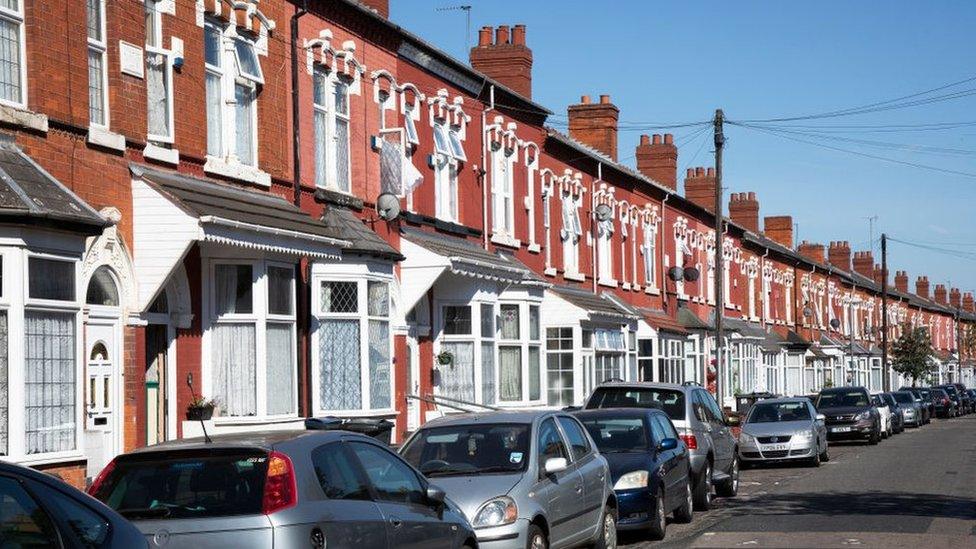Rented housing: Evicted family of eight forced into caravan
- Published
Housing: 'We were evicted through no fault of our own'
A family of eight have told how they had to live in a caravan after being evicted from their rental home through no fault of their own.
Darren and Lisa Pitts-Whitby and their six children lived in a caravan for 10 weeks before moving to a "damp, filthy" four-bedroom house in Abergele, Conwy.
Four girls, aged four to 13, are sharing one bedroom.
Cartrefi Conwy housing association said it would address outstanding repairs as a "matter of urgency".
It added it faced a "dire" shortage of properties for a family of eight.
Conwy council has been asked to comment.
The couple have two of their own children - an adult son Stephen, 26, and Emily, nine - and are permanent guardians to the other four - Ebony, 13, eight-year-old Brandon, six-year-old Ruby, and four-year-old Scarlett.
Under a so-called section 21 "no fault" eviction notice, they had two months to leave their privately rented home last May because the landlord wanted the property back.
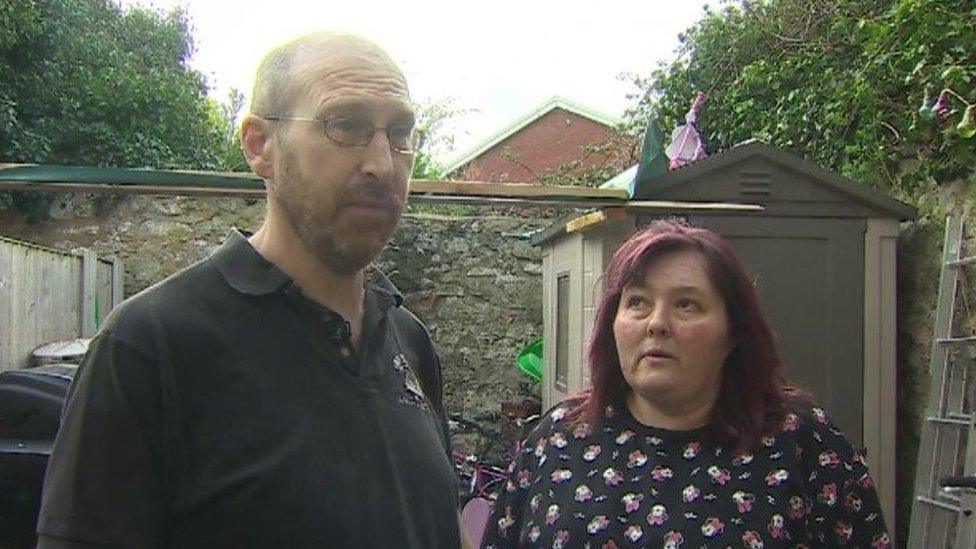
Darren and Lisa Pitts-Whitby say the process has been an "absolute nightmare"
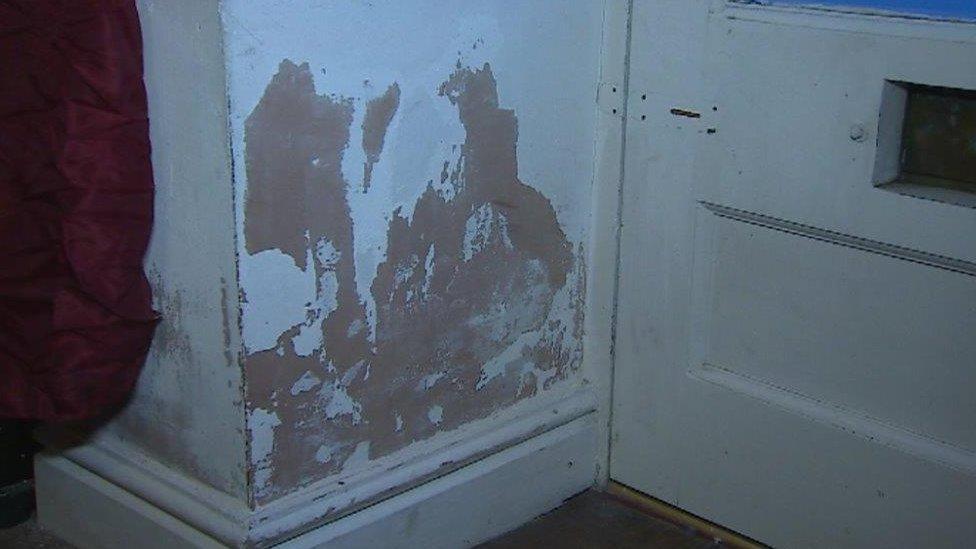
After the caravan, the family were offered a "damp" and "cramped" house
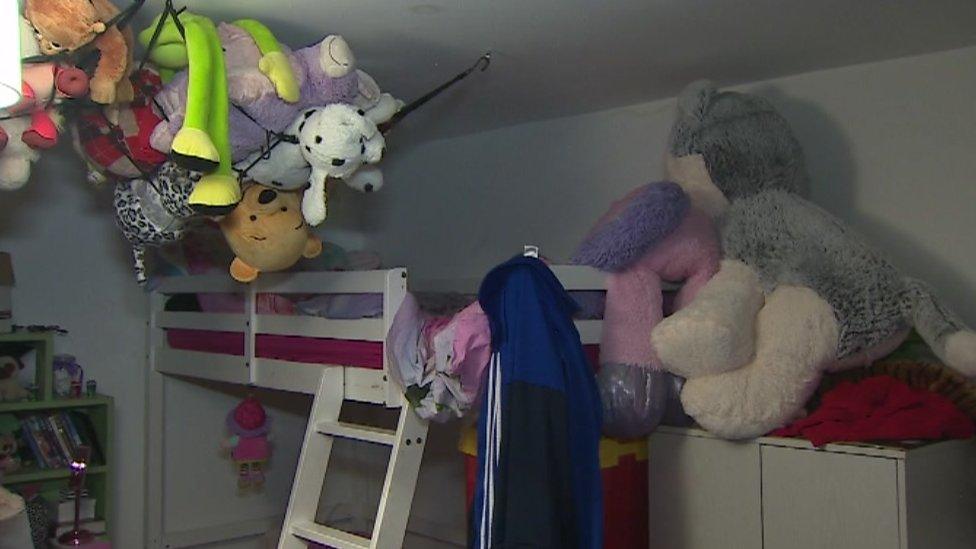
The family's four girls are now sharing one room
After turning to the council for help, the family were moved into an eight-berth caravan in Towyn for 10 weeks, before being moved to the "cramped" house in Abergele.
Mr Pitts-Whitby, 53, said the process was an "absolute nightmare".
"When we opened the door [to the house] all you could smell was damp and it was just filthy, from the front door straight through to [the back garden] which was full of dog excrement and rubbish," he said.
"It was beyond words at the time."
Mrs Pitts-Whitby, 43, said: "We've tried making it as comfortable as we can for the kids because they've been through such an upheaval already."
Repairs have been carried out while the family has been there, but they are waiting for more.
They said rents in the private sector were too high and there was a lack of adequate social housing.
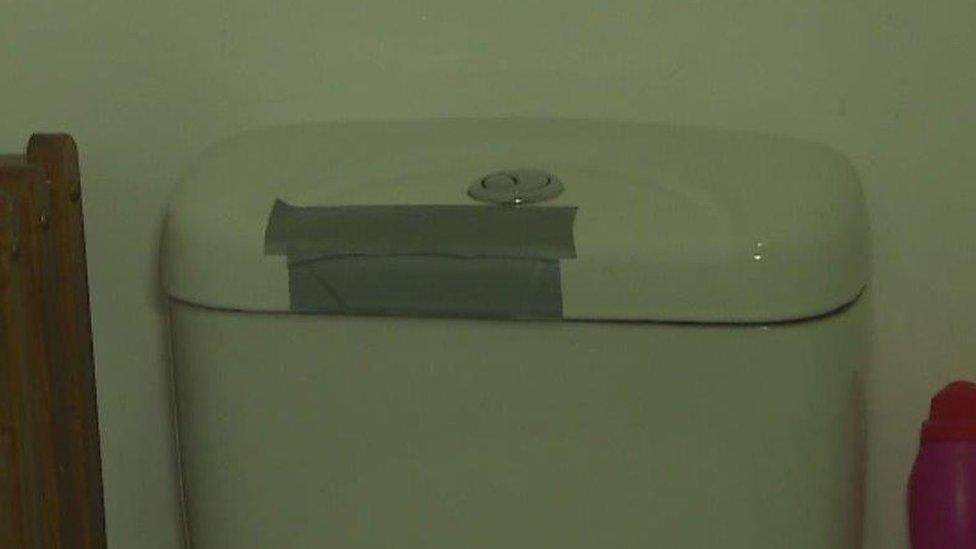
A broken toilet lid fixed with gaffa tape
They have been offered houses in neighbouring Denbighshire "which is completely out of the question because it's out of the catchment areas for the schools", Mr Pitts-Whitby said.
"Other people see that you've been evicted, and assume that it's for rent arrears and you've not paid your bills," said Mr Pitts-Whitby, who works for a climbing equipment manufacturer.
"I've always worked, and paid my way."
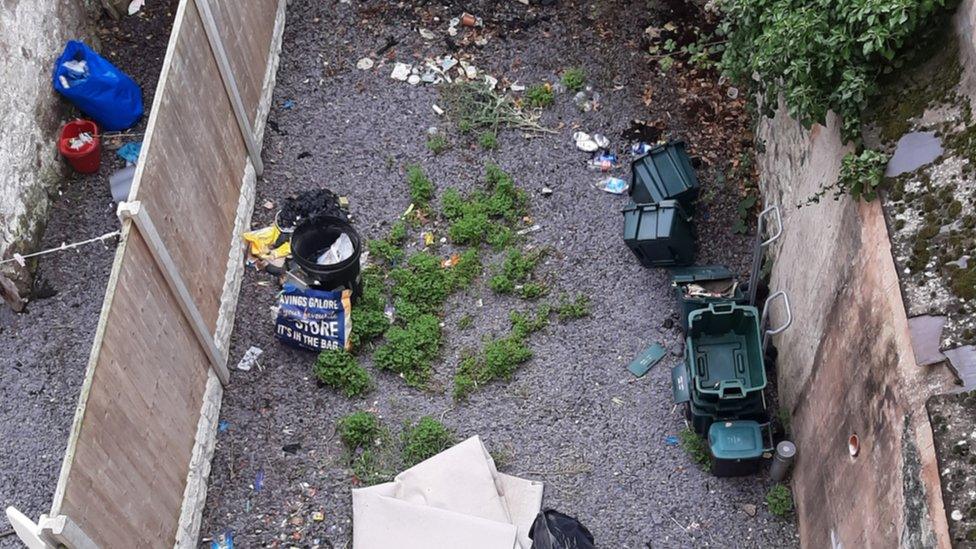
The couple say the garden was covered in rubbish and dog excrement when they moved in
Gwynne Jones, managing director at Cartrefi Conwy housing association, said the property was rented from a private landlord for temporary accommodation and managed on behalf of the council.
"Whilst the majority of the issues in relation to this private sector property have been addressed, we would like to apologise to the Pitts-Whitby family for not ensuring the problem of damp was tackled in a more timely way," he said.
He said the association was working with the council to find the family suitable, permanent accommodation.
When can tenants be evicted?
Landlords have to give two months' notice to tenants, but under Welsh Government plans published last week, this will be extended to six months.
Evictions will also be banned in the first six months of a tenancy, meaning people are guaranteed a year free from the possibility of having to move if they stick to the terms of their contracts.
Tenants who breach their contracts - for example, by not paying rent - could be evicted sooner.
Landlords say section 21 evictions avoid long court proceedings when they need to remove a problem tenant quickly.
Rhiannon Evans, head of a policy and campaigns for Citizens Advice Cymru said: "The short notice period currently associated with no-fault evictions means families have no time to save, prepare and plan - which can have further negative financial implications."
The Welsh assembly's equality committee will soon start investigating the Welsh Government's plans, which will affect people living in more than 200,000 privately rented homes in Wales.
- Published20 January 2020
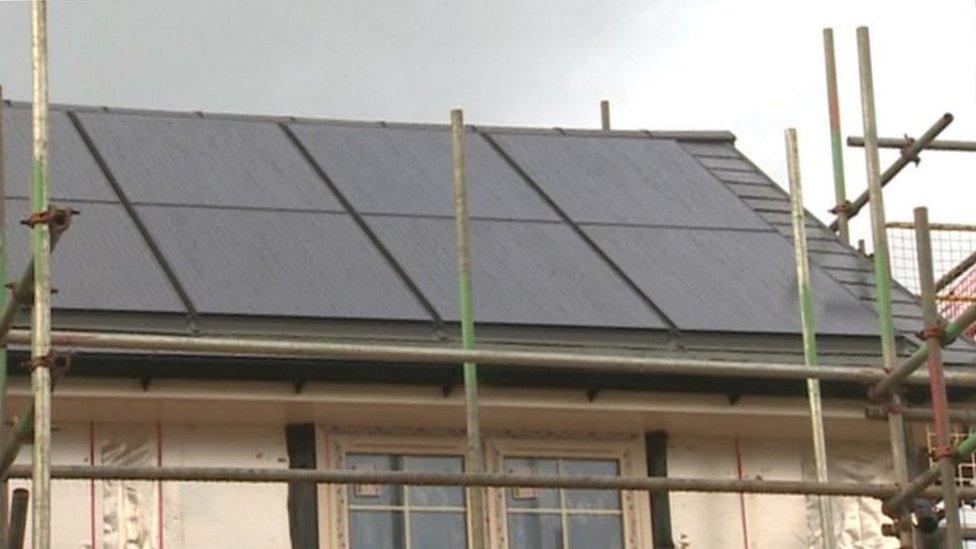
- Published9 September 2018
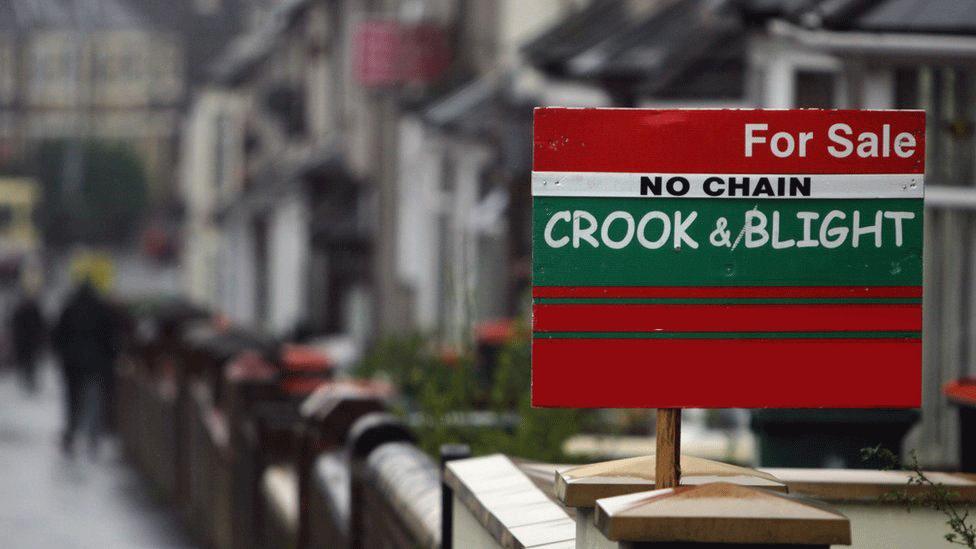
- Published10 February 2020
